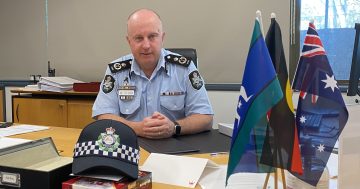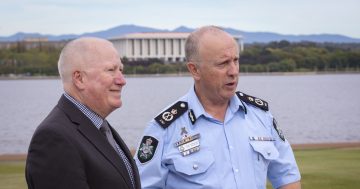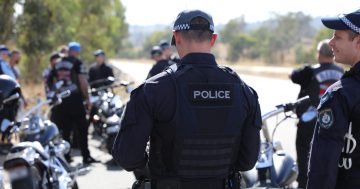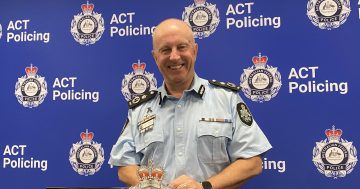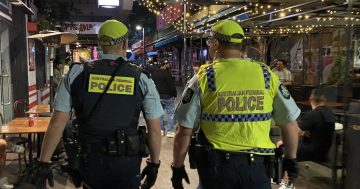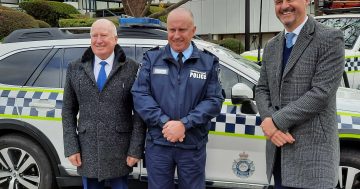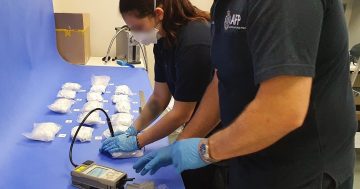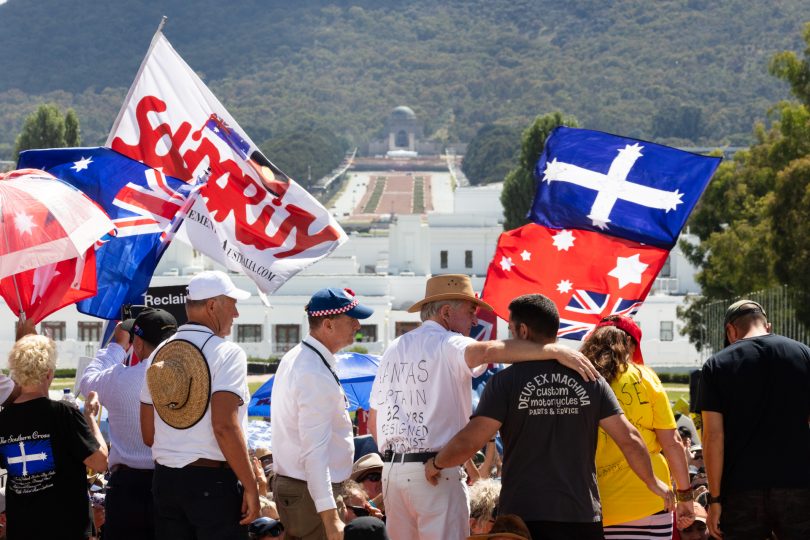
Police intelligence suggests ‘freedom’ protesters may return to the capital next month. Photo: Thomas Lucraft.
ACT Policing has warned Canberrans to prepare themselves for what could once again be significant disruptions as protesters return to Canberra at the end of next month to coincide with Federal Parliament budget sittings.
Chief Police Officer (CPO) Neil Gaughan has told an annual reports hearing that work was already underway to prepare policing resources for the return of anti-vaccine mandate protesters next month. He said their best intelligence suggests similar levels of protest activity to what was witnessed in mid-January could resume once again.
ACT Policing estimated the recent protest activity to be the largest recorded in the Territory since the 1980s and, while the protests may have peaked on Saturday, 12 February with around 10,000 to 15,000 people gathering in the Parliamentary Triangle, CPO Gaughan said some smaller, ongoing protest activity continued to require “some rate of effort” from policing.
Protests had begun in late December when Old Parliament House was targeted and vandalised by anti-government, anti-vaccine and sovereign citizen protesters. But it wasn’t until 31 January that the so-called ‘Convoy to Canberra’ began rolling slowly into the Territory.
The group was twice evicted during its stay in the Territory – once from the lawns outside the National Library and then from Exhibition Park. A few were also asked to move on after camping illegally at the Cotter Campground. Others are still in the campground but are now in legal spots.
While some remain, protest activity has been largely subdued since last weekend when the protesters were asked to move on from the EPIC campground to make way for preparations for the Canberra Show.
“This was a unique protest because it went for so long… I cannot recall a protest that has gone on for so long,” CPO Gaughan said.
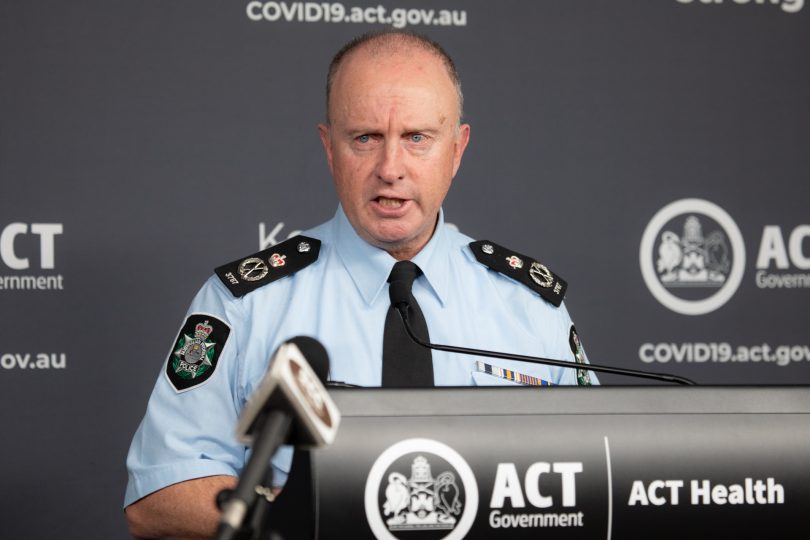
Chief Police Officer Neil Gaughan said it had been a challenge to keep up momentum for two months of rolling protests. Photo: Michelle Kroll.
CPO Gaughan said it had been a challenge to ensure his officers received sufficient rest as well as food and water to sustain the necessary momentum and manage the protests peacefully.
Likewise, the fact many of the protesters were not from Canberra and the fact their cause was not “well-supported” by Canberrans had led to additional difficulties such as the need to “move on” illegal campers as well as logistical challenges related to such a large influx of interstate visitors rolling into the capital at once.
But in the past two months of protests, only 23 arrests have been made, which CPO Gaughan said was proof the protests have been “managed in a way that met the expectations of the community”.
He said it had been a rarity for ACT Policing’s activities to receive so much support from the community and the media.
In order to manage the protests, ACT Policing – which is a service contracted from the AFP – has received assistance from AFP National as well as other jurisdictions.
But CPO Gaughan said this assistance hadn’t extended so far as to constitute a “direct injection” of state or territory police to the ACT. Instead, he said the other jurisdictions have been able to provide intelligence as well as some additional technical capabilities.
“[This intelligence] had been in relation to people of interest who have come to the Territory. That information has been passed through to us, in many instances, without us even requesting it,” he explained.
Police in other jurisdictions, including as far away as Queensland and Western Australia, had been actively monitoring convoys as they travelled to and entered the Territory.
They were able to provide information about the numbers and types of people coming. Without it, CPO Gaughan said ACT Policing would have been running blind.
ACT Policing set up an intelligence group in mid-December and its operations are ongoing.
Minister for Police and Emergency Services Mick Gentleman also told the hearing he had written to the federal territories Minister earlier this year to express his concerns about “what seems to be less action from the federal government in dissuading protest activity in the territory”.
“I’m very concerned about the results and responses I’ve received. They haven’t been that affirmative. It appears [the Federal Government] don’t seem too worried about what is happening here in Canberra; it’s most disappointing. But I will still persist and see what we can do.”












